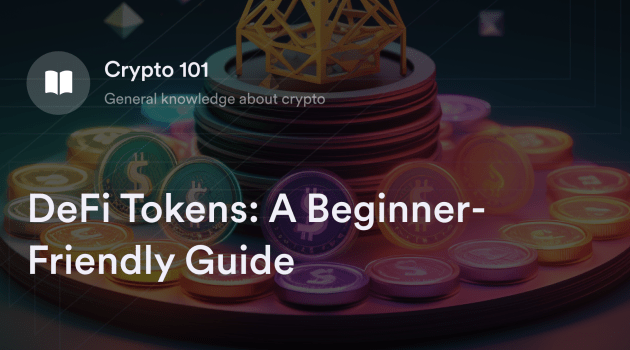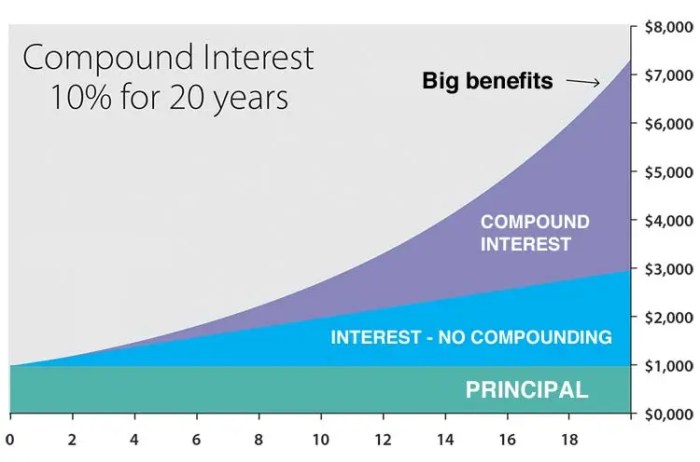Kicking off with What are DeFi tokens?, this opening paragraph is designed to captivate and engage the readers, setting the tone for an in-depth exploration of decentralized finance and its impact on the cryptocurrency world.
Decentralized Finance (DeFi) has been a hot topic in the cryptocurrency space, revolutionizing traditional financial systems and offering new opportunities for investors and users alike.
What are DeFi tokens?
DeFi tokens, short for decentralized finance tokens, are digital assets that operate within the decentralized finance ecosystem. These tokens are designed to facilitate various financial activities without the need for traditional intermediaries like banks or brokerages.
When it comes to decentralized finance, understanding Chainlink oracle integration is crucial. Through this Chainlink oracle integration explained , users can grasp the importance of oracles in connecting smart contracts with real-world data. This integration plays a vital role in ensuring the accuracy and reliability of information used within the blockchain ecosystem.
Role of DeFi tokens in decentralized finance applications
DeFi tokens play a crucial role in enabling decentralized finance applications to function smoothly. These tokens are used for a wide range of purposes, including lending, borrowing, trading, and yield farming within decentralized platforms.
- Facilitating decentralized exchanges: DeFi tokens are commonly used as a medium of exchange on decentralized platforms where users can trade various digital assets without relying on centralized exchanges.
- Providing liquidity: DeFi tokens are often used to provide liquidity to decentralized exchanges and liquidity pools, allowing users to earn rewards for contributing their assets.
- Collateral for loans: Some DeFi tokens can be used as collateral to secure loans in decentralized lending platforms, enabling users to borrow funds without traditional credit checks.
Examples of popular DeFi tokens and their use cases
There are several popular DeFi tokens in the cryptocurrency market, each serving a specific purpose within the decentralized finance ecosystem.
When it comes to blockchain technology, the integration of oracles plays a crucial role in ensuring data accuracy and reliability. One such prominent oracle is Chainlink, known for its secure and decentralized network. If you’re curious about how Chainlink oracle integration works, you can check out this detailed explanation on Chainlink oracle integration explained.
This article breaks down the process and benefits of incorporating Chainlink oracles into blockchain projects.
- Uniswap (UNI): UNI is the native token of the Uniswap decentralized exchange, used for governance and liquidity provision on the platform.
- Compound (COMP): COMP is the governance token of the Compound protocol, allowing holders to vote on protocol upgrades and changes.
- Aave (AAVE): AAVE is the token of the Aave lending platform, used for governance and fee discounts for users participating in the protocol.
Types of DeFi tokens

DeFi tokens play a crucial role in the decentralized finance ecosystem, offering various functionalities and benefits to users. There are different types of DeFi tokens, each serving a specific purpose within decentralized finance protocols.
Governance tokens, What are DeFi tokens?
Governance tokens are used to allow holders to participate in the decision-making process of a decentralized protocol. Holders of governance tokens have voting rights on proposals related to protocol upgrades, changes, or other important decisions. These tokens empower users to have a say in the direction of the DeFi platform, promoting decentralization and community involvement.
Utility tokens
Utility tokens are designed to provide access to specific services, products, or features within a decentralized finance platform. These tokens serve as a medium of exchange for accessing functionalities such as borrowing, lending, trading, or other services offered by the DeFi protocol. Utility tokens are essential for facilitating transactions and interactions within the ecosystem.
Stablecoins
Stablecoins are a type of DeFi token that are pegged to a stable asset, such as a fiat currency or a commodity, to minimize price volatility. These tokens provide stability and predictability in value, making them suitable for transactions, lending, and other financial activities within decentralized finance platforms. Stablecoins offer a reliable store of value and a hedge against market fluctuations.
Each type of DeFi token plays a distinct role in the DeFi ecosystem, contributing to the overall functionality and efficiency of decentralized finance protocols. Governance tokens empower users to participate in decision-making, utility tokens enable access to services, and stablecoins provide stability and predictability in value. Understanding the characteristics and functions of different DeFi token types is essential for users to navigate and utilize decentralized finance platforms effectively.
Investing in DeFi tokens

Investing in DeFi tokens can be an exciting opportunity for those looking to diversify their portfolio and take advantage of the growing decentralized finance space. However, it’s crucial to understand the process, risks, and strategies involved in investing in DeFi tokens to make informed decisions.
Acquiring and Investing Process
When it comes to acquiring and investing in DeFi tokens, the process typically involves the following steps:
- Choose a reliable cryptocurrency exchange or decentralized exchange (DEX) where the DeFi tokens are listed.
- Create an account on the selected platform and complete the necessary verification procedures.
- Deposit funds into your account using fiat currency or other cryptocurrencies.
- Select the DeFi tokens you wish to invest in and place buy orders at the desired price.
- Monitor the market trends and manage your investment portfolio effectively.
Risks and Mitigation Strategies
Investing in DeFi tokens comes with certain risks, including:
- Volatility: DeFi tokens are known for their price fluctuations, which can result in significant gains or losses.
- Smart Contract Risks: Vulnerabilities in smart contracts can lead to security breaches and financial losses.
- Regulatory Uncertainty: The regulatory landscape for DeFi tokens is still evolving, posing legal risks for investors.
To mitigate these risks, investors can:
- Diversify their investment portfolio across different DeFi projects.
- Conduct thorough research on the DeFi project, team, and technology before investing.
- Use hardware wallets or secure storage solutions to protect their investment.
Tips for Beginners
For beginners looking to invest in DeFi tokens, here are some tips to consider:
- Start with small investments to gain experience and understand the market dynamics.
- Educate yourself about blockchain technology, cryptocurrencies, and decentralized finance to make informed decisions.
- Stay updated on the latest trends, news, and developments in the DeFi space to identify potential investment opportunities.
Regulation and compliance: What Are DeFi Tokens?
As DeFi tokens and platforms continue to gain popularity in the cryptocurrency space, regulatory challenges have emerged. The decentralized nature of DeFi projects poses unique obstacles when it comes to compliance with existing financial regulations.
Regulatory challenges faced by DeFi tokens
- DeFi projects operate without intermediaries, making it difficult for regulators to oversee transactions and ensure compliance with anti-money laundering (AML) and know your customer (KYC) regulations.
- The lack of centralized control in DeFi platforms raises concerns about investor protection and the potential for fraud or market manipulation.
- Regulators are struggling to adapt existing regulations to encompass DeFi tokens and platforms, leading to uncertainty and legal ambiguity in the space.
Potential impact of regulations on the DeFi token market
- Increased regulatory scrutiny could limit the growth of DeFi projects by imposing compliance costs and restrictions on their operations.
- Regulatory crackdowns on DeFi platforms may deter investors and developers from participating in the ecosystem, potentially stifling innovation in the space.
- Clear regulatory guidelines could provide legitimacy to DeFi tokens and platforms, attracting institutional investors and mainstream adoption.
Importance of compliance for DeFi projects
- Compliance with regulations is crucial for the long-term sustainability of DeFi projects, as legal challenges could jeopardize their operations and reputation.
- Adopting compliance measures such as AML and KYC protocols can help DeFi platforms build trust with regulators and traditional financial institutions.
- Ensuring transparency and accountability in DeFi operations is essential to maintain investor confidence and protect against regulatory backlash.
Final Summary

In conclusion, DeFi tokens play a crucial role in reshaping the financial landscape, providing innovative solutions and disrupting the status quo. As the DeFi ecosystem continues to evolve, staying informed and understanding the intricacies of DeFi tokens is essential for anyone looking to navigate this exciting space.

